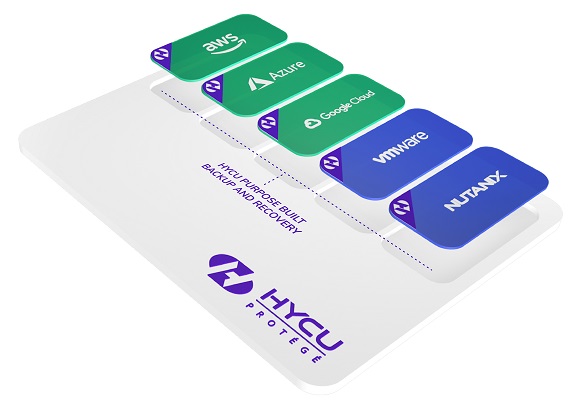AWS re:Invent - Hycu previews Protégé app-aware data protection
Cloud data backup and recovery as-a-service (Ed: is that DBRaaS?) company Hycu has joined the AWS 2021 partner news throng by announcing a preview of its Protégé for Amazon Web Services (AWS) product.
This is the company’s native as-a-service solution for workloads on AWS.
The services is meant to give enterprises customers a tightly integrated and application-aware solution to further protect, manage, and recover data for workloads on AWS.
According to the Flexera Cloud Report, AWS adoption among enterprises rose 79 percent from 2020 to 2021.
Hycu plays off this statement by suggesting that the rise in interest is coupled with the growing number of customers leveraging AWS for their cloud-first deployments, managing, protecting and recovering associated workloads.
“A vast percentage of [our] 3,000+ customers and partners have shown strong interest in leveraging AWS as a foundation for their cloud-first initiatives,” said Simon Taylor, founder and CEO, Hycu.
Taylor says that within the AWS Shared Responsibility Model, customers are responsible for data protection in the cloud, so his firm has announce the preview of its cloud-native data protection service for AWS here.
“We have never been prouder of what our team is showcasing at AWS re:Invent this year and we are thrilled to collaborate with the world’s largest hyperscaler to provide data resiliency, mobility, and disaster recovery to AWS customers worldwide,” added Taylor.
HYCU Protégé was designed and architected to support both on-premises and applications, and virtual machines (VMs) running on public clouds.
AWS-based workloads are identified and managed from within one single user interface
Developers: set-and-forget
With set-and-forget policy-based data protection, users do not need to be IT backup administrators to use. For developers, this provides ease of use and self-service capabilities to support container-based application development.
Protection policies can be applied globally, across container and non-container sources.
Users have the flexibility to leverage multi-regions and locations to spin up applications for recovery.
Why the name Hycu?
We presume it’s a play on ‘haiku’ the Japanese 17-line verse system… pure poetry eh?




